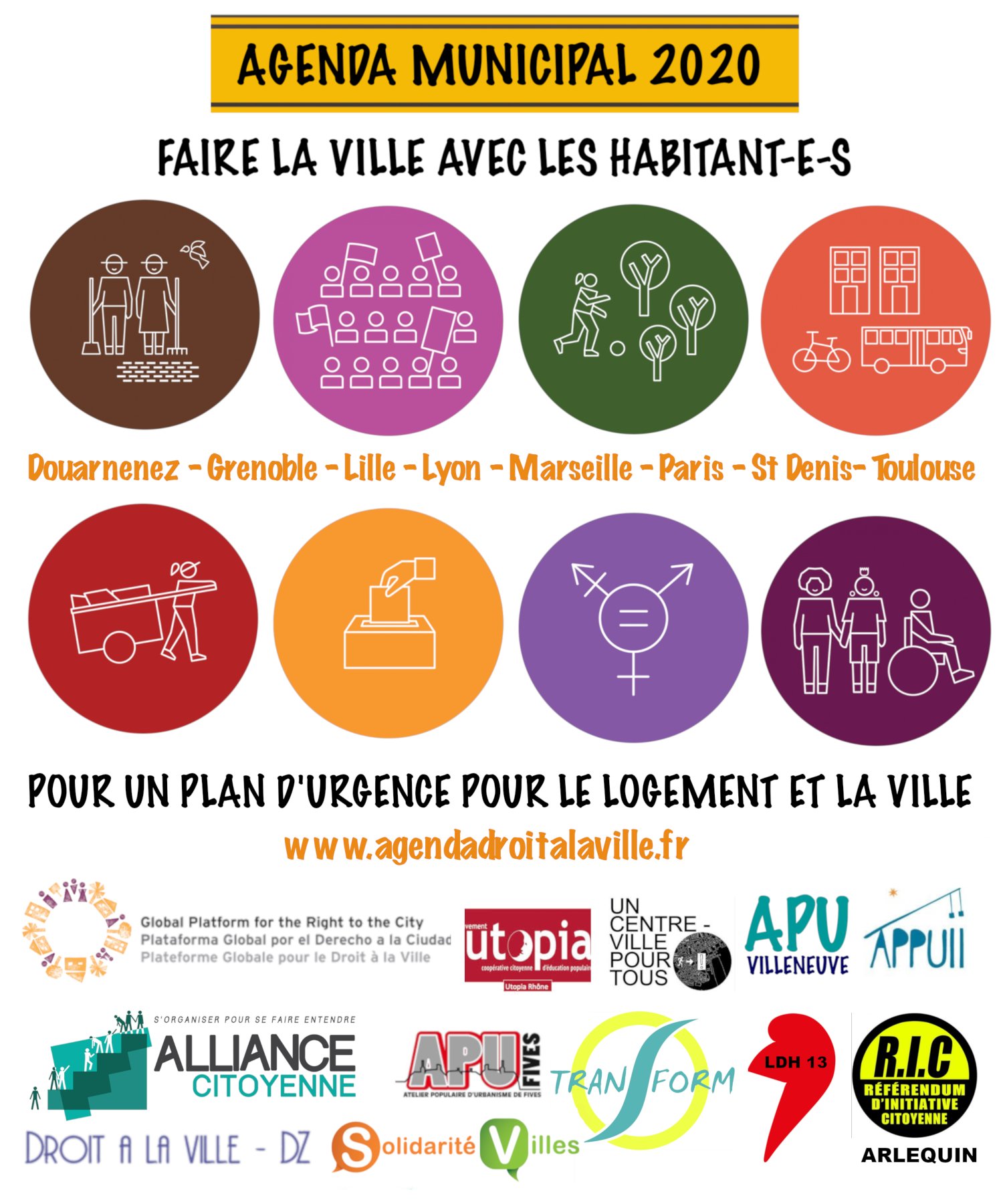
Building the city with its inhabitants
A call for the Right to the City
COVID-19 has caused an unprecedented crisis. While it is still too early to measure all the consequences, this crisis has revealed the extent of social inequalities: mortality was higher in working-class neighbourhoods with fewer public services, where housing conditions were more difficult and police control was tightened.
In some towns in Seine-Saint-Denis, mortality increased by 128% compared to the same period of the previous year according to INSEE. Today the emergency for the inhabitants is survival. They have to pay their rent and food expenses to feed their families. Housing expenses can represent on average 40 to 50% of household income. Short-time work or the loss of a job multiplies the situations of indebtedness and non-payment.
While solidarity networks and residents’ organisations have made it possible to respond to certain emergency situations, they need support to help build public policies that must be up to the challenge.
During the first round of municipal elections in March 2020, residents’ organizations in Grenoble, Lyon and Marseille initiated the campaign “The Agenda for the Right to the City” which gathered 350 proposals. Without limiting ourselves to electoral deadlines, we are launching an advocacy campaign for the second round of municipal elections which will take place on June 28th. The elections are an opportunity to debate our demands for the construction of an agenda for the right to the city.
To respond to this crisis, two sets of proposals seem to us to be priorities:
- An emergency plan for housing and the city
In the face of the crisis, many people living in working-class neighbourhoods are experiencing economic difficulties that impact their ability to pay rent and utilities. If nothing is done, the crisis will lead to evictions and a massive increase in poverty.
We call on local and national decision-makers to put in place adapted and robust public policies to respond to the challenges revealed by the health, social and economic crisis.
This is why we ask :
- the suspension of rent and charges for families in difficulty.
- the prohibition of evictions without a re-housing solution.
- a compensation fund for lessors and local public services affected.
These emergency measures are to be integrated in an exceptional plan for housing and the city co-constructed with the inhabitants, in respect of environmental rules, aiming at :
- Include the objective of 30% social housing by 2030 in the Local Housing Plan and at the neighbourhood level to combat urban segregation.
- Substantially increase the number of accommodation places to meet the objective of zero people on the street.
- The democratization in the city construction
For years, residents’ organizations have demanded to be associated in the city construction. Despite the reform of the city policy in 2014, which introduced the principle of co-construction, concrete changes are still awaited, especially in social housing operations, which are often an ecological and social aberration.
In order to put the inhabitants back at the centre of these projects, we are asking to:
- Open up the technical and political bodies of urban projects to all citizens and their representatives to ensure the transparency of public action and the real co-construction of projects.
- Introduce instruments of direct democracy, such as the citizens’ initiative referendum, to encourage the real expression of those most concerned about disputed projects such as demolitions.
- To set up specific financial means, such as the citizens’ initiative fund or the 1% citizenship, to provide the inhabitants with the necessary means for independent expertise and recognition of their knowledge of use.
- Democratize the functioning of social backers through local urban management and the co-construction of rehabilitation operations.
- Reforming the National Agency for Urban Renewal (ANRU) through a bill that strengthens the role of inhabitants and the implementation of an agenda for the right to the city.
Day of action on 20 June 2020
The civil organizations carried out a day of simultaneous actions in different cities through local actions and/or convergences with social mobilizations (procession for the regularization of undocumented migrants, housing for all, action against police violence…).
The city-wide solidarity that has developed in this period of crisis shows the extent to which cities can embody islands of resistance and be places for experimenting with struggles that can lead to new social projects.
Find all our proposals on the website www.agendadroitalaville.fr and do not hesitate to disseminate our proposals with the hashtag #droitalaville
First Signatories: Alliance Citoyenne (Grenoble), Appuii (St Denis), Atelier Populaire d’Urbanisme de la Villeneuve (Grenoble), Atelier Populaire d’Urbanisme de Fives (Lille), Droit à la Belleville (Paris), Droit à la Ville DZ (Dounarnenez), Grenoble en mouvement (Grenoble), LDH 13 (Marseille), Ric Arlequin (Grenoble), Transform (Grenoble), Utopia Rhône (Lyon), Un Centre Ville pour Tous (Marseille), Solidarité Villes (Toulouse)
With the support of the Global Platform for the Right to the City www.right2city.org




